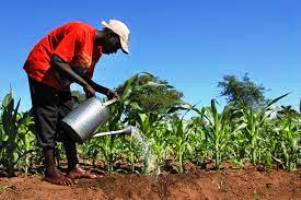An expert in Geographic Information Systems (GIS), Mr David Afolayan, has called on African governments to depend on technology for climate adaptation measures.
Afolayan, Chief Executive Officer, GIS Konsult, made the call in an interview in Ibadan on Tuesday.
According to him, climate change has come to stay with the realities all around.
He thus stressed the need for more information, with each country engaging in technological adaptations for sustainability.
He identified some of the effects of climate change as disruption in weather patterns, heat waves, flooding and drought.
He added that the effects were global, as warm temperatures melt glaciers and sea ice, leading to rising sea levels.
The expert said the disruption in the natural balance had resulted in more intense storms and rainfall, leaving other parts of the world to experience extreme drought.
He noted that most farmers were unaware of this new imbalance in the world and its impact on agriculture.
According to him, no one has really prepared for it.
He said the government must be bold and more ambitious in its climate actions.
“We have had enough of visions. It is action time to mitigate, adapt and provide means of implementing climate actions,” he said.
Afolayan reiterated the need to fight corruption in the various aspects that affect the populace as it could destroy any climate action.
He also called for the development of more renewable energy capacity, increased energy efficiency, and the promotion of sustainable agricultural practices through smart agriculture.
“This is the time for the government to depend on and promote research and innovation so that our farmers will have optimised farming and optimum results.
“There is a need to enhance our waste management system. Open burning and the old methods cannot work now as they will compound the effect,” he said.
Afolayan said there had been more talks on adaptation methods to reduce the effects of climate change but with fewer actions taken globally.
He added that what the developed countries were doing had not translated into anything for the developing countries, who had contributed less than four per cent to the emissions responsible for climate change.
“So, the developing countries are suffering the consequences of actions taken by the wealthier nations and it’s almost like the ants paying for the crime of the elephant.
“The developing countries are now being challenged to pay for the price of the developed countries and their own development,” Afolayan said.
The GIS expert stated that pushing out blanket instructions for the world was unfair.
He, therefore, called on African governments to look for effective ways to approach climate adaptation measures concerning each locality.
“It is not a one-size-fits-all approach.
“And despite NiMET warnings on weather patterns, farmers are still complaining of dry spells, whereas there is already information about it,” he said.
Afolayan says Nigeria has a peculiar situation due to terrorism and insecurity forcing farmers out of their locations, thus compounding food insecurity and the effects of climate change.
“For instance, there was news recently on Kwara State Polytechnic celebrating a bumper harvest of corn and other crops in tonnes.
“Whereas, in almost the same local government where Kwara State Polytechnic is located in Patagi, some people were lamenting damages done to their farmlands due to prolonged drought.
“So, there is the need for everyone to take steps, both government and individuals,” Afolayan said.


